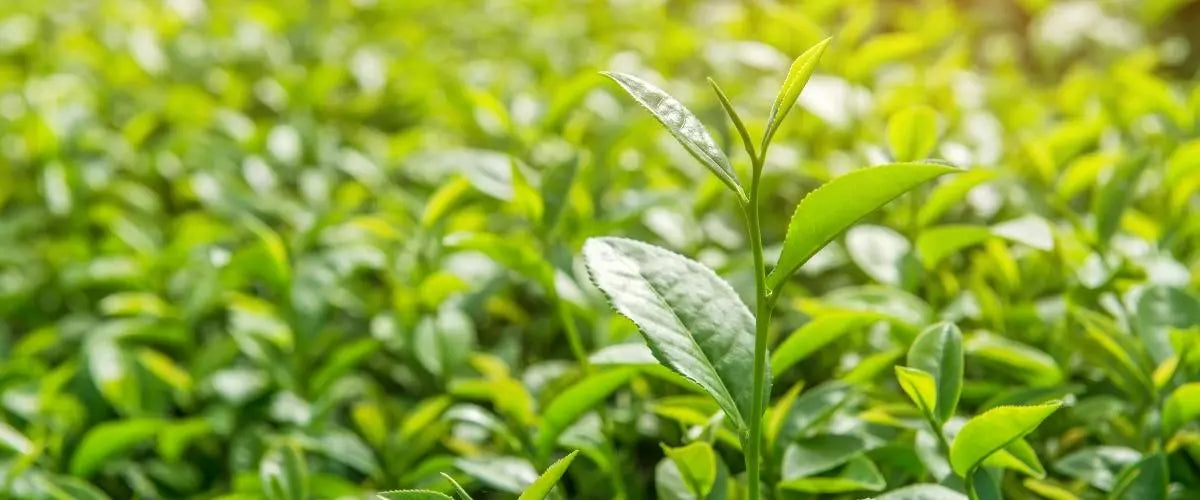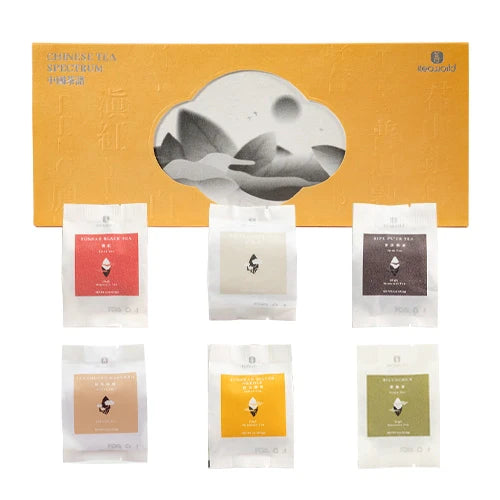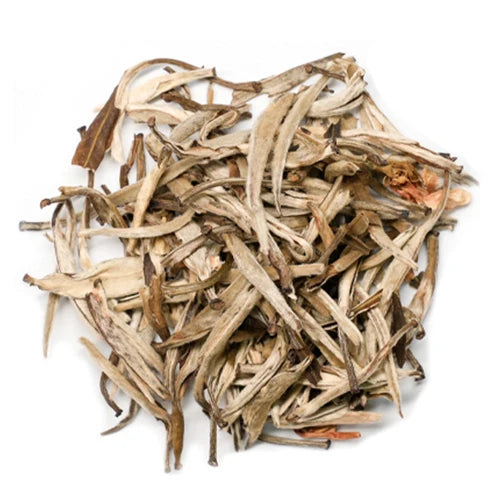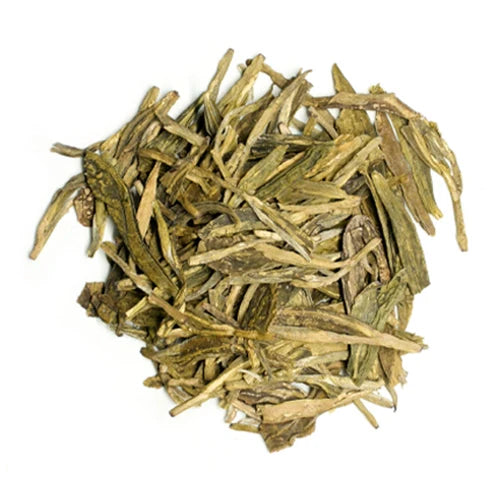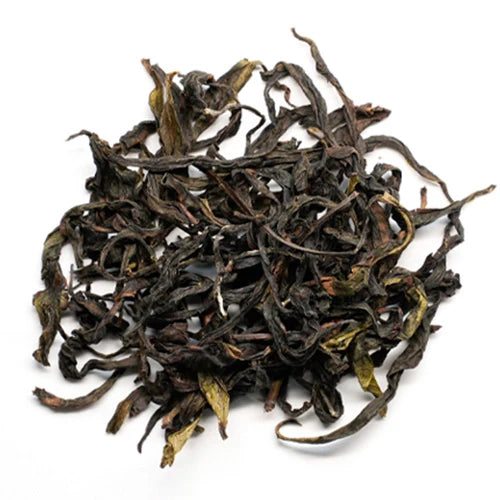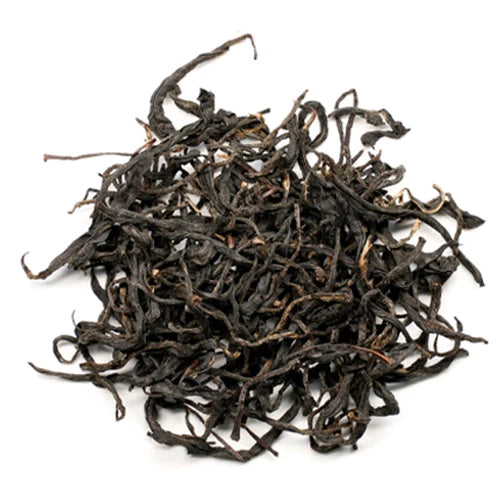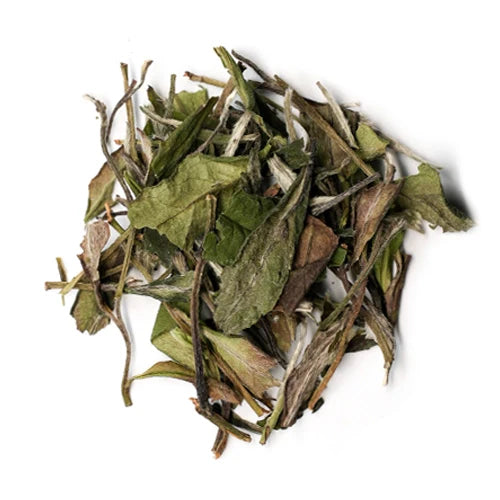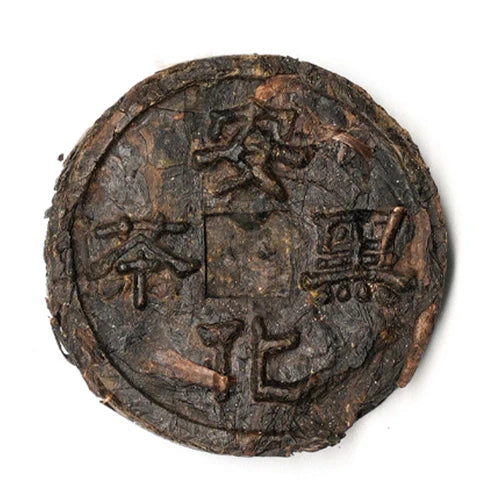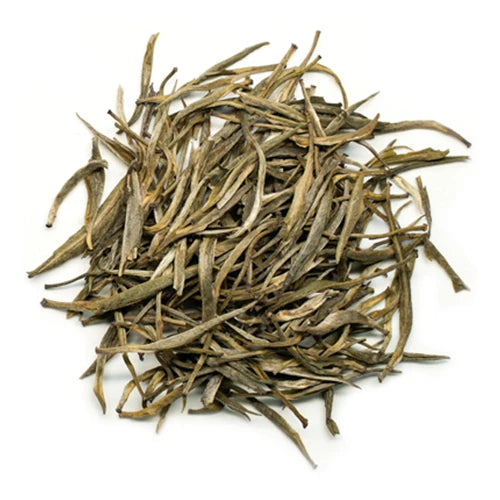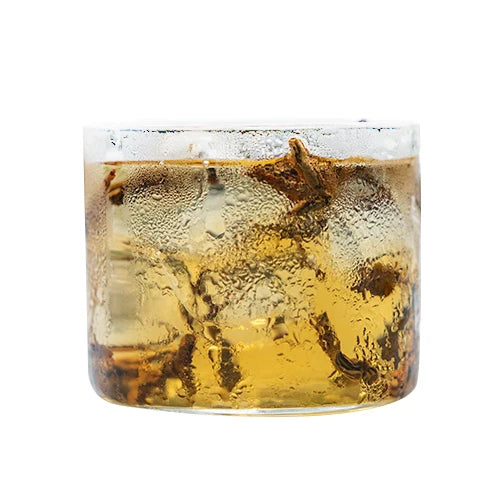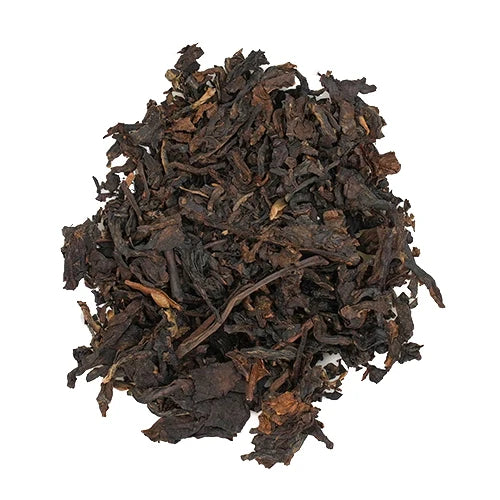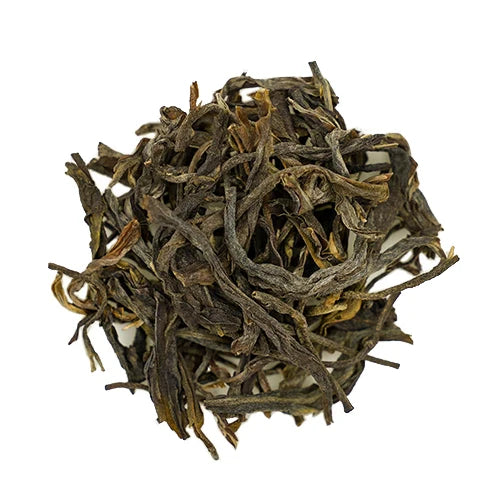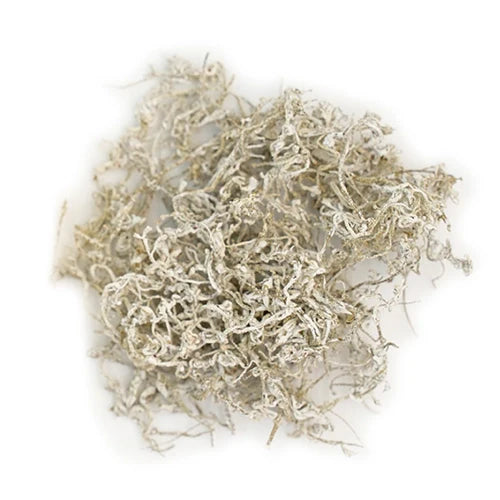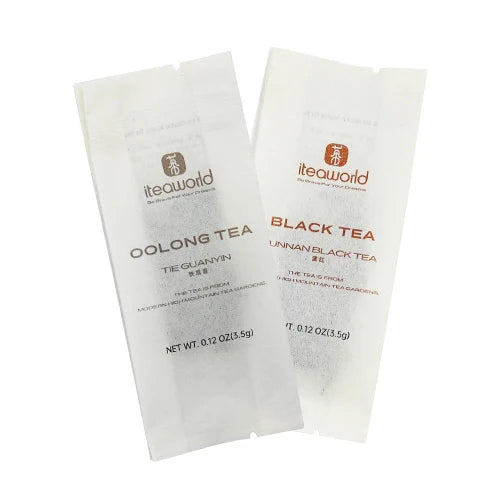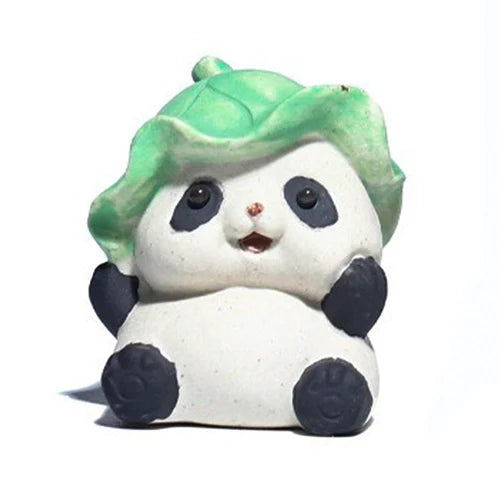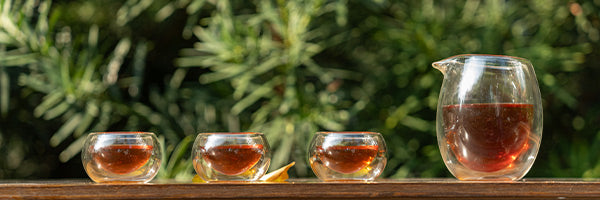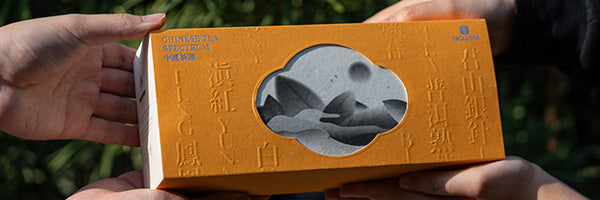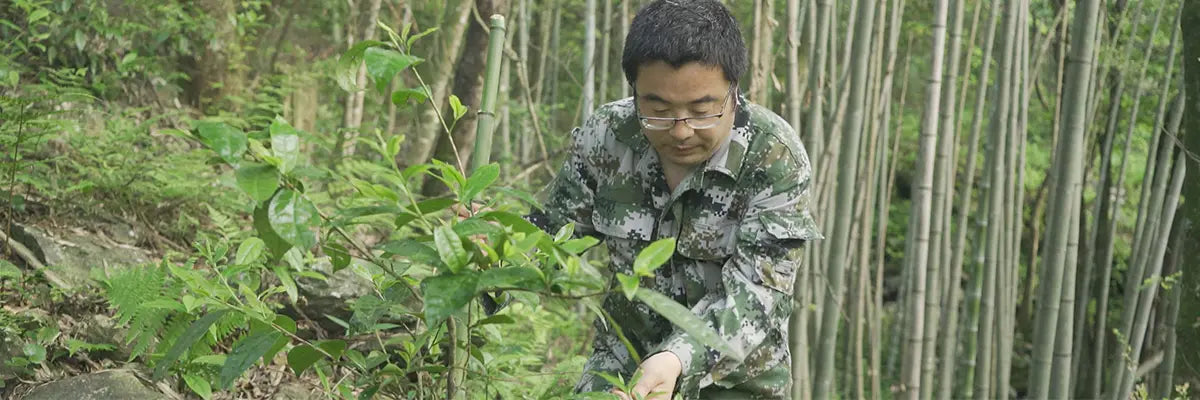Caffeine is a natural stimulant found in coffee, loose leaf tea, cocoa, and some soft drinks.
The caffeine in loose leaf tea can enhance the excitation process of the cerebral cortex, increase reflexes, shorten their latency period, and make brain thinking more rapid and clear, deepening the brain's sensitivity to external impressions.
Different individuals have varying needs for caffeine. Some may require loose leaf teas with high caffeine content to help stay alert, while others may need to reduce their caffeine intake from loose leaf teas. Below, let's explore the caffeine content in different loose leaf teas and discover the best loose leaf tea that suits individual preferences.
Caffeine in Different Loose Leaf Teas
Caffeine in Loose Leaf Green Tea

Loose leaf green tea is an unoxidized tea. Typically, loose leaf green tea has a lower caffeine content, with approximately 30-50 milligrams of caffeine per cup.
This makes loose leaf green tea a suitable tea for consumption throughout the day without causing insomnia or rapid heartbeats.
Find more loose leaf green tea with our Green Tea Sampler.>>>
Caffeine in Loose Leaf White Tea

Loose leaf white tea is a tea with a relatively simple production process, undergoing only mild oxidization during its production. The caffeine content in loose leaf white tea is generally lower, around 15-20 milligrams per cup.
This makes loose leaf white tea a relaxing beverage, suitable for consumption during summer or in the evening.
Caffeine in Loose Leaf Yellow Tea

Loose leaf yellow tea shares a production process similar to loose leaf green tea but undergoes a slight oxidization, categorizing it as a lightly oxidized type of tea. The caffeine content in loose leaf yellow tea is relatively low, typically around 20-30 milligrams per cup.
Despite its lower content, loose leaf yellow tea still has an invigorating effect and a mild taste, making it suitable for consumption on workday afternoons.
Caffeine in Loose Leaf Oolong Tea

Loose leaf oolong tea is a semi-oxidized tea. Generally, loose leaf oolong tea has a higher caffeine content compared to non-oxidized green tea and lightly oxidized white and yellow teas, containing approximately 25-45 milligrams of caffeine per cup.
This makes loose leaf oolong tea a tea that not only provides a caffeine boost but also offers diverse flavors.
The caffeine content can vary among different loose leaf oolong teas, with higher oxidization levels typically resulting in higher caffeine content. Use a tea sampler to explore different loose leaf oolong teas and find the one that suits your preferences.
Find more loose leaf oolong tea with our Oolong Tea Sampler.>>>
Caffeine in Black Tea

Loose leaf black tea is a fully oxidized tea. The caffeine content in loose leaf black tea is relatively high, usually ranging from 40-70 milligrams per cup, with some varieties even higher.
This makes loose leaf black tea an ideal choice for an energizing boost, but it's important to be mindful not to consume excessive amounts to avoid affecting nighttime rest.
Similar to loose leaf oolong tea, different loose leaf black teas may have varying caffeine levels, influenced by the corresponding tea varieties' oxidization levels. A tea sampler would be a fitting choice to explore the caffeine content in different loose leaf black teas.
Find more loose leaf black tea with our Black Tea Sampler.>>>
Caffeine in Loose Leaf Dark Tea

Loose leaf dark tea is post-oxidized tea, with a caffeine content typically ranging from 45-70 milligrams per cup, and some varieties even higher.
Loose leaf dark tea boasts a distinctive taste and rich flavor, making it suitable for those who appreciate robust tea experiences.
Caffeine in Loose Leaf Tea vs. Caffeine in Coffee
Loose leaf tea contains 3.5% caffeine, while coffee beans contain 1.1-2.2%. On the surface, it appears that loose leaf tea has a higher caffeine content than coffee beans.
However, what we ultimately consume is coffee or tea, not directly eating loose leaf tea or coffee beans. During the brewing process, more caffeine is released from coffee beans, and the quantity of coffee beans used for brewing a cup is generally higher than the amount of loose leaf tea. Therefore, a brewed cup of coffee typically contains more caffeine than a cup of tea.
How to Reduce Caffeine Intake from Loose Leaf Tea?
Although caffeine in loose leaf tea is generally safe for most people, excessive intake may lead to discomfort in certain situations. If you are concerned about consuming too much caffeine, consider the following:
1.Choose loose leaf teas with lower caffeine content
Loose leaf green tea, loose leaf white tea, and loose leaf yellow tea generally have lower caffeine content, making them suitable choices for those seeking lower caffeine options.
2.Discard the first tea steeping
The first steeping of tea has the highest caffeine content. Discarding the first steeping and not consuming it can reduce caffeine intake by about half.
Typically, the first steeping is used for rinsing the tea and is not consumed, making it a suitable choice.
3.Use the cold brewing method
The higher the temperature, the easier it is for caffeine to be released from loose leaf tea. If you want to reduce caffeine intake, cold brewing can be an effective method.
The caffeine content in different loose leaf teas is related to the production process. Generally, teas with higher oxidization levels tend to have higher caffeine content.
In general, drinking loose leaf tea can help reduce caffeine intake compared to drinking coffee. If you are concerned about the caffeine content in tea, choosing suitable brewing and consumption methods can also help reduce caffeine intake to some extent.





